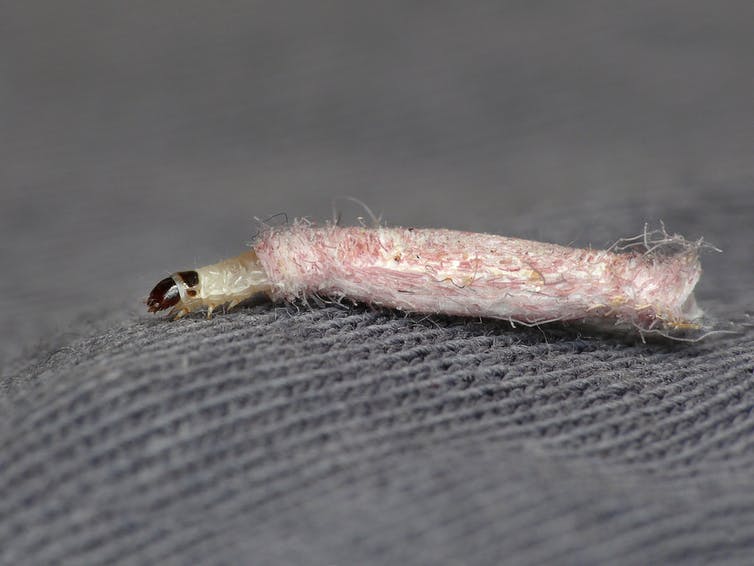I get a lot of questions about moths – do they eat clothes, where do they come from, how can I get rid of them? Today, I’m going to answer the question: Do moths eat suits? In short, yes, moths can and will eat suits.
However, it’s not as common as you might think. Moths are attracted to natural fibers like wool and cotton, which are often used in clothing. Synthetic fibers like polyester and nylon are less appealing to moths.
If you have a moth problem, you’re probably wondering whether or not they’ll eat your suits. The answer is yes, moths will absolutely eat suits if given the chance. Here’s what you need to know about moths and how to protect your clothing from them.
Moths are attracted to natural fibers like wool and cotton, which is why they’re often found in closets full of clothes. They’ll also go after synthetic fabrics if that’s all that’s available. Once they start feeding, they can do a lot of damage in a short amount of time.
The best way to protect your clothing from moths is to keep them out of your closet in the first place. Vacuum regularly and store seasonal clothes in airtight containers when you’re not using them. You can also treat your clothes with moth repellents or cedar balls to keep them away.

Credit: blog.csiro.au
How Do I Protect My Suits from Moths?
As the weather starts to warm up, you may find yourself reaching for your lighter-weight suits more often. But before you can enjoy wearing your suits again, you need to make sure they’re protected from pesky moths. Here are a few tips on how to keep your suits looking sharp and moth-free all season long:
1. Store them in a cool, dry place. Moths love warm, humid environments – so storing your suits in a cool, dry closet or storage unit is key. If possible, use cedar hangers or line your storage space with cedar chips to help repel moths naturally.
2. Keep them covered. Using garment bags or breathable storage containers will help protect your suits from both dust and moths. If you don’t have any garment bags on hand, simply wrapping your suits in acid-free tissue paper will do the trick.
3. Clean them regularly. Moths are attracted to dirty fabric – so make sure to clean yoursuits regularly (at least once a season). Use a gentle detergent specifically made for delicate fabrics – and be sure to have them professionally dry cleaned if they start to show signs of wear and tear.
By following these simple tips, you can rest assured that your suits will stay looking sharp all season long – without falling victim to those pesky moths!
Can a Moth Eat Your Clothes?
Yes, a moth can eat your clothes. The larvae of moths are especially fond of feasting on natural fibers like wool and cashmere, but they will also nibble on synthetics if given the chance. Moth holes are usually small and round, and the damage is often concentrated in one area of the garment.
If you spot signs of moth activity in your closet, don’t panic! There are several things you can do to get rid of these pesky critters and protect your clothing from future attacks.
How Do I Stop Moths Eating My Clothes?
If you’re finding that moths are eating your clothes, there are a few things you can do to try to stop them. First, make sure that your clothing is stored properly. Moths are attracted to dirty clothes, so keep your garments clean and dry.
You should also avoid storing clothes in plastic bags, which can trap moisture and create an ideal environment for moths. Instead, store your clothes in breathable containers such as baskets or cardboard boxes.
You can also try using moth repellents.
Cedar chips or lavender sachets can help deter moths from entering your closet. You can also purchase moth traps, which use pheromones to attract moths and then trap them on a sticky surface. If you’re dealing with a serious moth infestation, you may need to contact a professional pest control company for assistance.
What Bugs Eat Suits?
Bugs that eat suits are typically fabric pests, and the most common of these is the clothing moth. These moths lay their eggs in fabrics like wool or fur, and when the larvae hatch they start to feed on the fibers. This can cause irreparable damage to your favorite suit, so it’s important to be aware of these pests and take steps to prevent them from infesting your wardrobe.
There are a few things you can do to protect your suits from fabric-eating bugs. First, keep them stored in a cool, dry place. Moths prefer warm, humid environments, so storing your suits in a climate-controlled closet or chest will help deter them.
You can also purchase special cedar hangers or moth balls to put in your storage area; both of these release chemicals that repel moths. Finally, make sure you regularly inspect your suits for signs of infestation (e.g., small holes in the fabric) and take them to a professional for cleaning if you notice any damage.
Why do moths eat our clothes?
Conclusion
According to the blog post, moths do not eat suits. The author argues that while moths may be attracted to the fabric of a suit, they do not actually consume it. This is because moths lack the mouthparts necessary for eating solid food.
Instead, they rely on liquid sources of nutrition such as nectar. Therefore, if you find a moth in your closet, it is unlikely that your clothing is at risk of being eaten.
